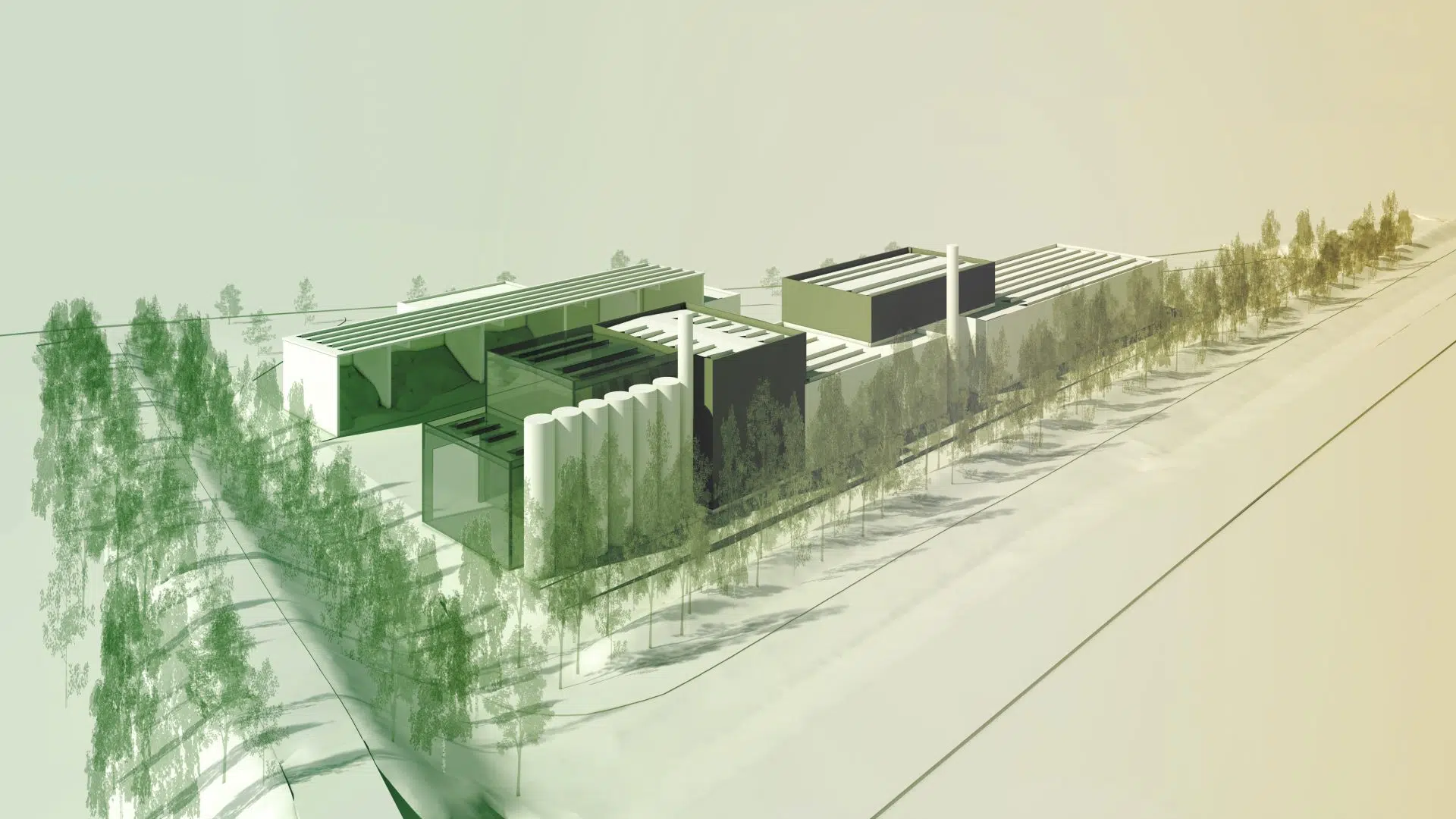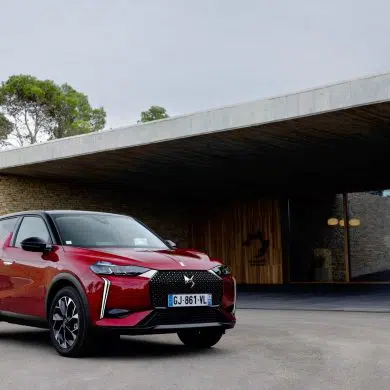The BMW Group plant in Dingolfing will use heat generated from local biomass and its own wood waste to meet around 50% of the hot water requirements for production processes from 2025 onwards. The company has signed a supply contract with UP Energiewerke GmbH, a joint subsidiary of the public utility Stadtwerke Dingolfing and Bayernwerk Natur, to supply around 100,000 MWh of thermal energy per year. In this way, the BMW Group plant in Dingolfing will save around 20,000 tonnes of CO2 per year, compared to the use of conventional fossil energy sources.
"This agreement is an important element of our future energy mix. It will strengthen localisation, the use of renewable energy and our resilience. Alongside green energy, green heat will also be key to continuing to improve our environmental footprint," comments plant manager Christoph Schröder. "By using biomass as a renewable energy source and with this contract to supply locally produced heat, we will be able to reduce our overall CO2 by approximately 10 to 15% per year compared to current levels."
The energy will start to be supplied in the second quarter of 2025 at the latest. The supply contract is for a 20-year term, with an agreed purchase of thermal energy quantities on an annual basis amounting to approximately 100,000 MWh. The heat will be generated in a new biomass heat plant located on an industrial road in Dingolfing, on a site directly adjacent to the BMW Group's 02.40 vehicle plant, between the Dynamics Centre and the A92 motorway.
Since 2010, Dingolfing's public works department has been operating a biomass heat plant in the south-east of the city, which supplies heat to public buildings and private households. The new plant will be implemented in cooperation with E.ON's Bayernwerk Natur through the joint subsidiary UP Energiewerke GmbH, in which both partners hold 50% of the shares.
Together with Robert Heider, Stefan Pscheidl will be one of the two managing directors of UP Energiewerke GmbH: "This fantastic project is another step towards decarbonisation on a local level. We are incredibly proud that our new heat generation plant will cover around 50% of the thermal needs of the BMW Group's largest vehicle factory in Europe from biomass." Heider then added: "We are particularly pleased that the project management - involving a global player like the BMW Group, a company like Bayernwerk Natur that operates throughout the state of Bavaria and the Dingolfing public works department as the local municipal authority - has always worked extremely well and that an initial joint idea has now resulted in a milestone project. This is an important building block that will contribute to the energy transition."
New biomass heat plant west of the vehicle factory of the BMW Group
The heat production plant will have three boilers that will operate year-round, as well as its own shredder-crusher for pallets and wood waste. UP Energiewerke GmbH will invest a total of around EUR 35 million in this plant over the next few years. Underground pipelines will transport the locally generated heat to the energy centre in the BMW Group's 02.40 vehicle plant, where it will be distributed throughout the plant via the plant's internal network. Construction of the heat plant is scheduled to begin in late 2023.
"Creating an overall coherent project, with regional loops and a strong cooperation with the public works department and Bayernwerk Natur was important to us," said Roland Zeller, sustainability manager at the BMW Group plant, who contributed to the development of the heat generation plant. This will ensure that the heat generation plant - including its filter technology - will meet the latest environmental standards.
Wood waste and wood residues from local forest areas
Around a quarter of the wood used as fuel will come from the BMW Group's own untreated wood waste - such as disposable pallets and transport boxes. However, the majority of the wood will come from local forest areas, i.e. sustainably managed and PEFC-certified forests within an average radius of 60 kilometres from Dingolfing. As with the existing heat plant in Dingolfing, the partner for the wood supply is Biomasse Vertrieb Ostbayern (BVO) GmbH, which is supported by local forest owners and the Dingolfing public works department. The wood used as fuel is a by-product of forestry and logging that cannot be used elsewhere. Available in large quantities, it was until recently often exported abroad in the form of wood chips. Their use by sustainable forestry instead of fossil fuels for energy production helps to reduce CO2, as CO2 released during combustion is captured by the atmosphere during the growth and life phase of plants.
Anton Heidobler, forestry engineer and managing director of BVO GmbH, explains: "Bavarian forestry will face enormous challenges in the coming years as climate change continues to evolve. Stands consisting mostly of coniferous trees have to be converted into climate-stable mixed forests by planting more deciduous trees and changing the tree species. Young trees should also be cared for in the early stages and arrangements should be promoted for the development of mixed woodlands, consisting mainly of climate-resistant tree species. For this reason alone, significant amounts of wood waste will be generated in the coming decades, both from normal use and from logging, which can be recycled in a meaningful and economical way in the energy sector. With the new consumer heat plant, we will be able to maintain value creation locally. Using local biomass makes environmental sense and ensures shorter distances for transport and recycling. For sustainability reasons, we will, of course, only take what can be regrown each year in our forests."
"A milestone in the preservation of the industrial fabric of the region"
Armin Grassinger, mayor of the city of Dingolfing and chairman of the supervisory board of Stadtwerke, said: "The city of Dingolfing has been successfully cooperating with the BMW Group plant in Dingolfing in many different areas for decades. The construction of the new biomass heat plant is another shining example of how the community and businesses can work together to reduce CO2. I am very happy with the completion of this project. It is another milestone in maintaining our position as an industrial region and another milestone on the road to climate neutrality."
Dingolfing plant manager Schröder concludes by placing the new supply contract in the context of the BMW Group: "Each region in our global production network is following its own unique path towards long-term decarbonisation of its production. Here in Lower Bavaria, we firmly believe that, in addition to further efficiency benefits and the evaluation of potential uses for energy-to-heat conversion, the availability of wood and biomass locally as a raw material will be another important building block of our heat strategy - and will further reduce our dependence on fossil fuels such as natural gas and oil in the future. We are excited about this agreement and the cooperation with UP Energiewerke GmbH."








